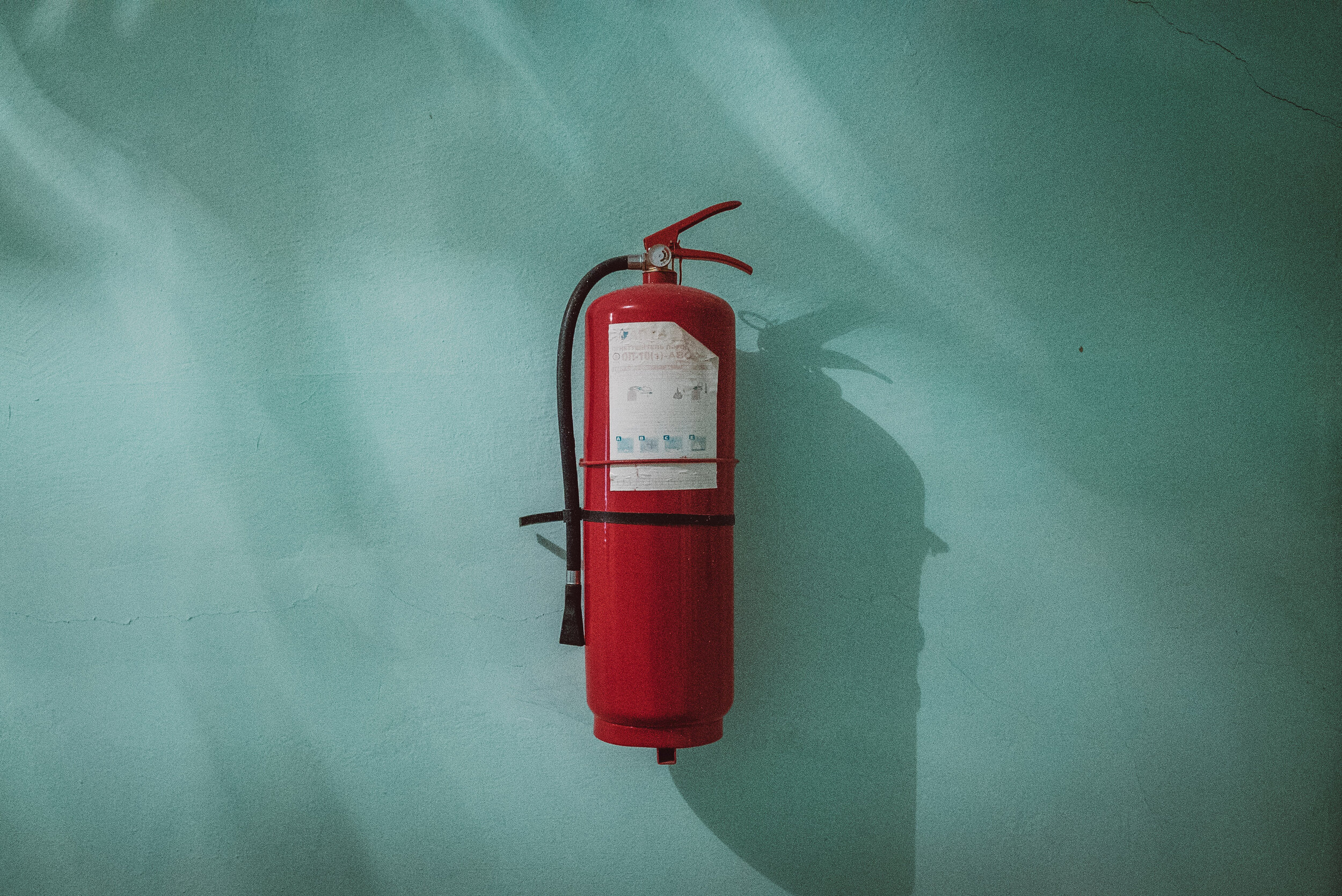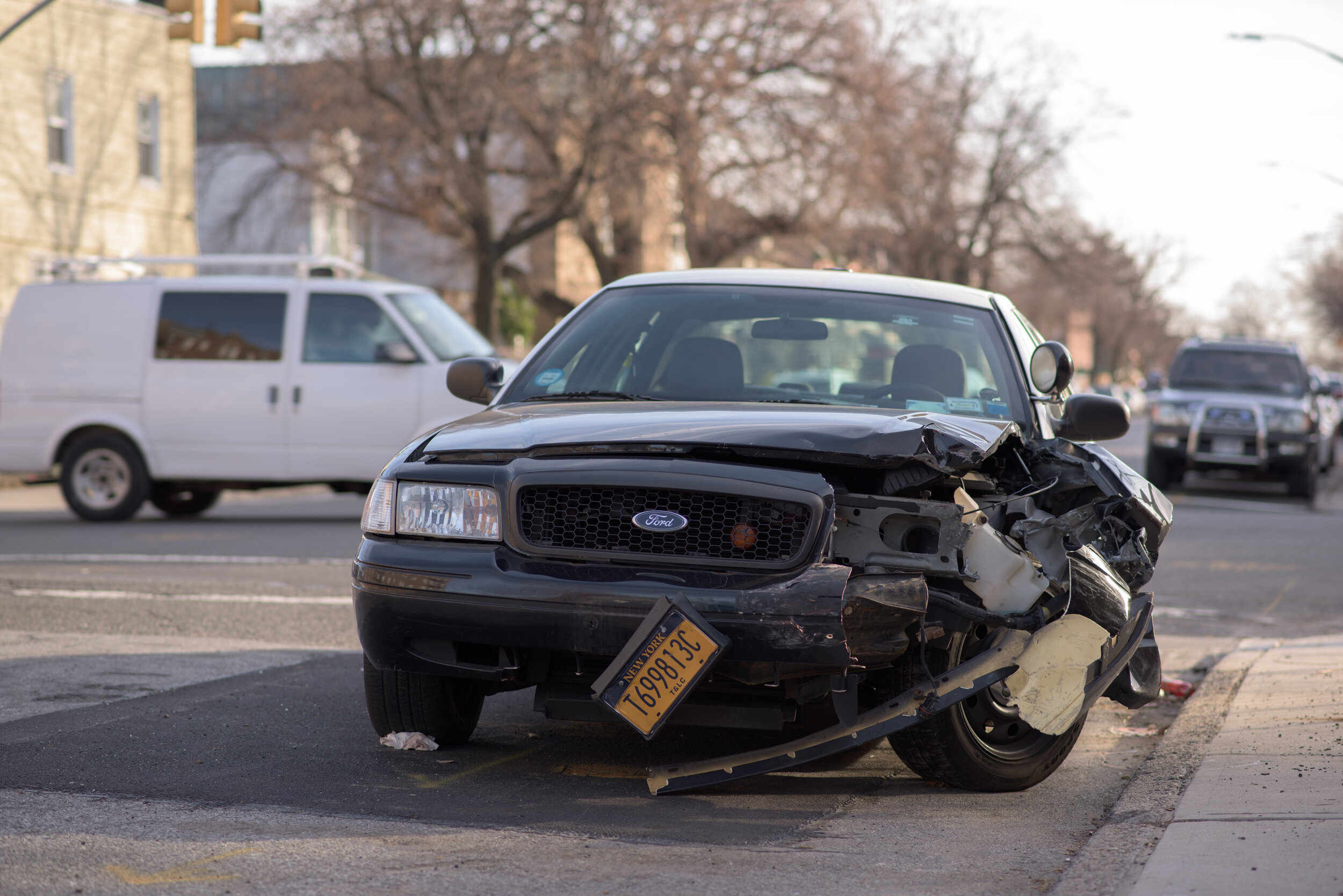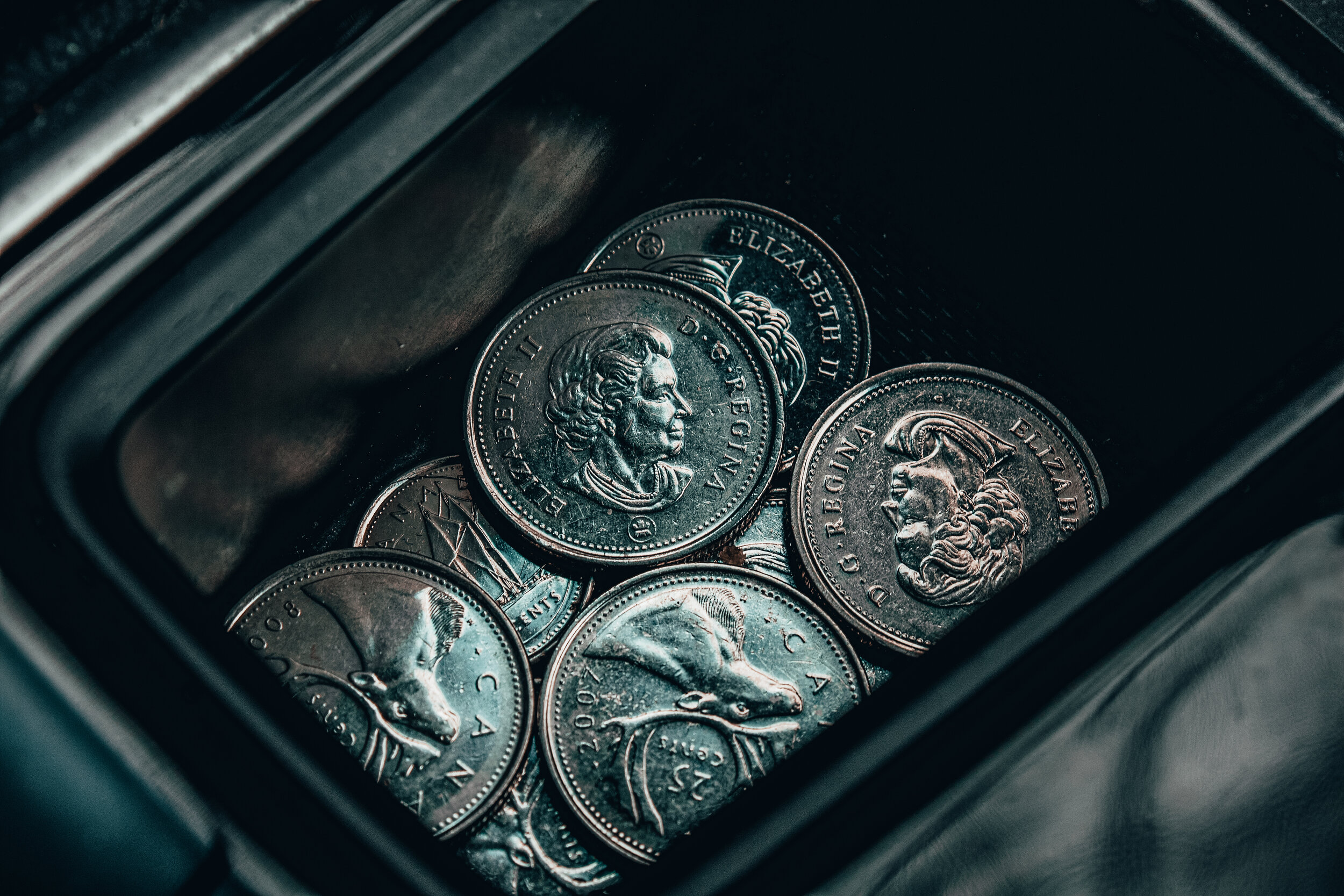Emergency Funds 101
Take a moment right now to stop and think: if I lost my job tomorrow, would I be able to support myself over the next few weeks, or even the next few months? If you’re not sure, that means you probably don’t have an emergency fund started. The same way you have a first aid kid or a fire extinguisher in your home, you should have an emergency fund to pull money from in case an unexpected event requires you to come up with a significant amount of money on short notice. You can also think of it like having an insurance policy on your home or your car; you hope you never have to make a claim through it, but by paying your premium steadily over time, you’re well prepared just in case you do.
In a report by the Government of Canada published in 2019, it was stated that roughly two-thirds of Canadians do actually have an emergency fund that would support them for about three months time if they were unexpectedly laid off. While this is pretty great, there are still millions of Canadians who aren’t prepared for a sudden financial shock, like the one our country experienced this spring with the onset of COVID-19. It’s estimated that over 3 million jobs were lost in Canada between March and April, and while our economy has been making strong strides towards recovery over the summer, there are still millions of Canadians who are struggling to find work as temperatures begin to drop and we move into the fall. Though we can’t yet be certain, with transmission of the virus expected to rise as people head indoors, it’s prudent to assume that if we return to more serious lockdown restrictions, they’ll be accompanied by more economic trouble (meaning Canadians really need to be prepared financially for what could be a very tough winter).
All things considered, if you don’t already have an emergency fund of your own already, you should be planning how to start one. To help you get off on the right foot, we wanted to answer all the most commonly asked questions about emergency funds in one place - welcome to Emergency Funds 101!
What is an emergency fund for?
An emergency fund should be used to cover unexpected expenses; examples include a surprise veterinary bill or car repairs from a small accident. An emergency fund that’s been saved in diligently can also help tide you over in the event you lose your job and must go without income until you find another one. It’s all but guaranteed that you’ll experience some kind of event in your life that creates a significant expense for you without any advance notice. If you’re prepared to cover this kind of expense (or at least a healthy portion of one), you’ll be able to withstand what would otherwise be a significant financial shock. If you don’t have an emergency fund but must cover a large expense on short notice, you may be put in a position that requires you to withdraw from your retirement savings, or worse, take on a large amount of high-interest debt on your credit card or a pay-day loan. These kinds of options can be devastating in their long-term effects on a person’s financial health, particularly as the fees associated with repaying high-interest debt can easily become higher than the principal amount to begin with and require you to pay back a significant amount more money than you originally borrowed.
Emergency funds should not be used to cover planned expenses or non-essential consumption. That means, you can’t be pulling from your emergency fund to cover your groceries or rent, or to cover a night out with friends. If you don’t let your emergency fund grow, you’re defeating the purpose of having one; you won’t actually be prepared when an emergency does occur.
What makes an emergency fund different than regular savings?
An emergency fund is meant to be separate from your other savings because of what the money is intended to be used for. If you’re in the habit of saving money on a regular basis, you’ve probably got a few ideas for how you plan to eventually use that money: a dream post-COVID vacation, renovations on your home, or a down payment on a new vehicle. Having a large amount of money saved means you’ll still be prepared in the event of an emergency, but it’s coming directly out of your goals. Instead, by having a separate emergency fund, you’ll know you have some money to cover unexpected expenses on the side while you continue to save towards the larger purchases you want to make.
How much money should I save in my emergency fund?
This number is going to be proportional to your personal income level and lifestyle. The Government of Canada recommends trying to maintain an emergency fund of somewhere between 3 to 6 months of your income, or between 3 to 6 months of your expenses. This amount of money will help you navigate uncertain times with relative ease, and will offer you a great deal of peace of mind in regards to your finances. If you’re interested in determining a specific dollar amount for yourself to save towards, there are a variety of emergency fund calculator tools available online; you can check out one provided by RBC here.
However, if you’re just getting started, that can seem like an overwhelming amount of money to try to save. Saving 3 to 6 months of income is a medium-term financial goal, meaning the average person can’t achieve it within a two-year period. This is particularly true for people who work lower wage jobs, as this demographic has the least amount of disposable income left over to save once essential purchases are made. Instead, a great first saving goal for your emergency fund is $1000. This amount of money won’t keep you afloat over a long-term period, but it’ll help you out in a major way in the event something like an unexpected bill arises. Once you’ve hit $1000, work on increasing that number and ensuring you always have $1000 put away. You may be surprised to find that saving in your emergency fund has an addictive effect, and you’ll be more motivated to keep that financial buffer intact at all times!
Why not invest my money instead of saving in an emergency fund?
If you’re not already in a financial position where you could feasibly support yourself for the next six months if you lost your job tomorrow, then you should recognize that investing your extra money represents a significant risk to your assets. Even equipped with a strong knowledge of investing, you won’t be able to accurately predict everything that could cause major swings in the stock market. In general, the periods when the market is plunging rapidly are the same periods when most people need to call upon their extra assets in the stock market to stay afloat, meaning the money you invest in the stock market could be sitting at an extremely low value when you do actually need to use it. If you are dead set on investing, recognize that you’ll need to be extremely well-read about global events and the stock market, as well as experienced in the process of buying and trading stocks to experience any kind of meaningful success. So, unless you’re a stock market wizard or you’ve somehow received some valuable information from the future, it probably makes more sense to wait until you have a sustainable amount of money to pay a financial expert to invest some of your assets for you.
I’ve got some credit card debt I’m trying to pay down. Should I focus on that first, or start saving towards my emergency fund?
This can be a tough question to answer, as it’s highly dependant on your personal situation and how much you can afford to put towards these two activities each pay period. However, there is a simple rule you can follow as you go: if you’ve got more than the equivalent of roughly one of your pay period’s worth of credit card debt, you should focus on getting it paid down first. Otherwise, interest fees might catch up with you and further throw you off your saving goals (emergency or otherwise). You can still be saving small amounts towards your emergency fund each pay period, but only once you’ve got a bit more breathing room with your debt will you be able to save larger amounts of money and ensure that it actually remains saved.
What do I need to do to get started?
Unless you’re extremely disciplined, you’ll need to have a separate savings account for your emergency fund. This is so you’ll always have a clear dollar amount to refer to as your “emergency money”, and so that your savings don’t get blended into in your other disposable income (it’ll be too easy to spend it that way). The money in this account should be relatively liquid as well, meaning it shouldn’t take more than a few days for you to access your money in full.
A great suggestion for this is to open an online savings account with a bank or a credit union that offers a high interest rate on deposits. These kinds of accounts usually have low-to-no banking fees associated with them due to their minimal features, and if you don't have a debit card associated with the account, you won’t have instant access to your money. You will, however, still be able to transfer money to and from that account rapidly in the event you need it in a rush. You’ll also be earning a little bit of extra cash on the side through interest payments (though you should be certain that any bank fees you’re paying aren’t cancelling out those benefits).
Another suggestion is to start actively saving with QUBER. Obviously, we know we’re biased on this, but a QUBER account offers you exactly the features you need to save towards an emergency fund effectively; the app allows you to save money in a secure third-party account without paying any bank fees (QUBER is completely free for users). You can choose how much money you’d like to send over to the Vault each pay period, and move money to and from your bank account within a matter of a couple business days. You can also join one of our Saving Challenges that will reward you with a cash incentive if you reach a specific saving goal over a set period of time, so if you don’t want to pass up what you’d be earning in interest in a standard bank account, you can still have it through the app! If you’ve got a Canadian bank account and you’re interested in getting set up, you can download QUBER here.
I don’t have much money left over each pay period to put towards my emergency fund. What should I do?
We completely understand that for some people, this is unfortunately their reality on a regular basis; once spending on essentials like rent, food and bills is done, they have little or no money left over to save. However, there are still small ways you can try to save a bit of what you’re earning and slowly grow your emergency fund. For example, you can start yourself a change jar, and every time you get home, all your loose change in your pockets/wallet/bag should go in this jar (it’ll build up faster than you think!). Once the jar is full, you can bring it to your bank and transfer that amount into your secondary emergency account, then repeat the process.
If you do keep a fair amount of disposable income after paying for your essentials but can’t seem to find any money to save, you likely need to reassess your priorities when it comes to spending. Take some time to read through your transaction history over the past couple months and see if you can spot any patterns in the way you spend money. Once you’ve got a good idea of where your money has been going, you can effectively cut down on anything that’s clearly excessive. An example is relying on ridesharing apps; if you’re seeing Uber or Lyft coming up on your statements all the time, you know you have a clear category that you can cut down by riding your bike, walking, taking public transit or getting a ride from friends here and there. You don’t have to stop taking Ubers completely, but you could save a ton of money towards your emergency fund by planning ahead and leaving yourself time to reach your destination in another less expensive manner. If no one category seems to be dominating the others, try skimming a bit out of every one. You may not notice small changes overall, but the extra money you save collectively may go a long way. For example, you could think about your grocery bill and try to eliminate one or two non-essential items each time you go; that could be anywhere from $5 to $10 (or more) saved each time you visit the grocery store!
Another good time to save is when you receive larger sums of money from outside your main source of income. These include your annual tax return, or earnings from selling your belongings to other people. It’s tempting to use this extra cash on something nice for yourself when you get it, but if you move it over to your emergency fund quickly, you don’t get the chance to think of it as spending money for very long. Remind yourself that you don’t know when, but you can be pretty well sure you’ll need that money to help cover something over the next few years.
We hope this info on emergency funds drives home why it’s so important to have one, and inspires you to get started if you haven’t already. Ultimately, having an emergency fund is doing yourself a huge favour; the ability to continue your life relatively unscathed after a financial emergency is a gift. Your future self thanks you!
Check back to Money Talks every Monday for a new post featuring more tips and tricks on how to reach your saving goals, and subscribe to our mailing list for blog updates!
Have a suggestion for something you’d like us to write about? Shoot us a message at contactus@quber.ca and we’ll get to work.





